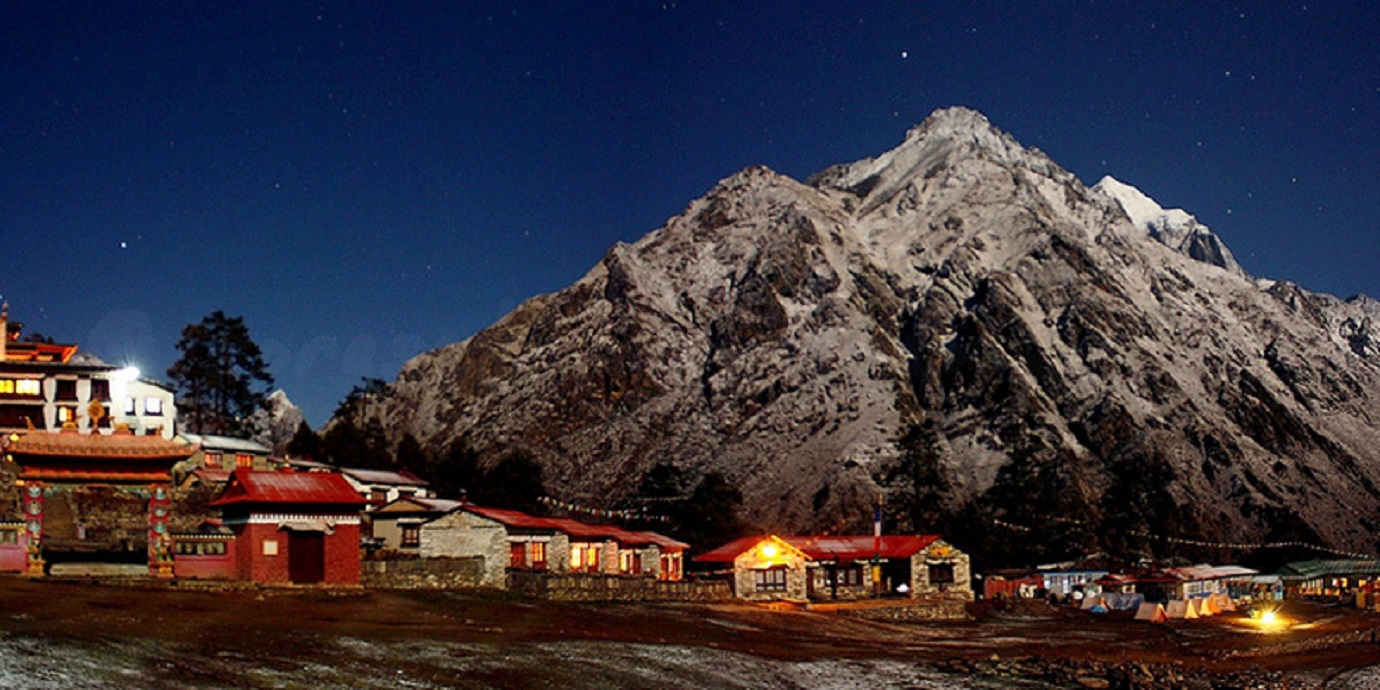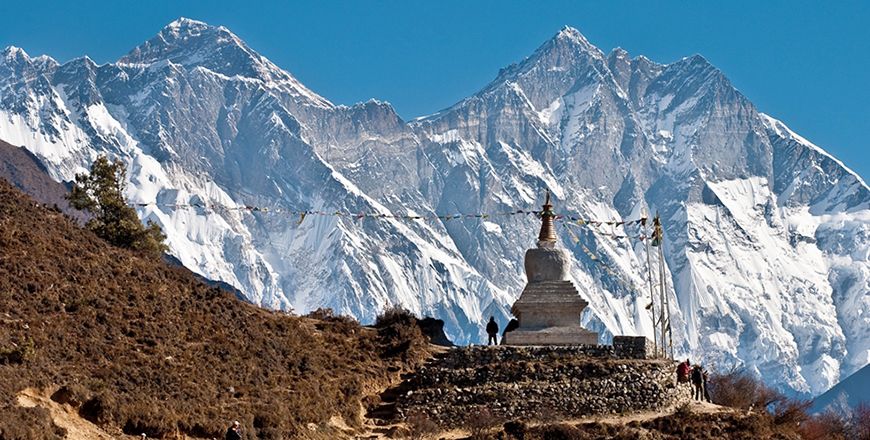The difficulties in Everest Base Camp Trek Trail present significant challenges for trekkers, both physically and mentally. High altitude is one of the main obstacles, with the risk of altitude sickness being a constant concern. The trail is demanding, with steep ascents, rugged terrain, and long, exhausting days of walking. Trekkers must also cope with unpredictable weather conditions, which can shift from clear skies to snow or rain within hours.
Table of Contents
- The Harsh Realities of Everest Base Camp Trekking
- A Journey of Endurance
- The Physical Challenges of Trekking to Everest Base Camp
- The Mental Challenges of Trekking to Everest Base Camp.
- Altitude Sickness: The Biggest Threat to Trekkers.
- Preparing for Everest Base Camp Trekking: Training and Gear.
- The Importance of a Good Guide for Everest Base Camp Trekking.
- The Cost of Everest Base Camp Trekking: Budgeting Tips.
- The Environmental Impact of Trekking to Everest Base Camp.
- The Rewards of Trekking to Everest Base Camp: Personal Growth and Achievement.
- Conclusion: Is Everest Base Camp Trekking Worth the Journey of Endurance?
The Harsh Realities of Everest Base Camp Trekking
A Journey of Endurance
Embarking on a journey to Everest Region Trekking is a dream for many adventure seekers. The breathtaking scenery and the sense of accomplishment of reaching the world's highest mountain base are undeniable. However, this trek is not for the faint of heart. It's a journey of endurance, both physically and mentally. The harsh realities of trekking to Everest Base Camp are not to be underestimated.
The altitude, the weather, and the rugged terrain pose significant challenges. But for those willing to push themselves to the limit, the rewards are immeasurable. This article'll explore what it takes to tackle this epic adventure and what you can expect. So, lace up your boots, pack your bags, and get ready for an unforgettable journey to the roof of the world.

The Physical Challenges of Trekking to Everest Base Camp
Trekking to Everest Base Camp is a physically demanding endeavor requiring a high fitness level. The trek covers a distance of approximately 130 km and takes around 12-14 Days to complete. During this time, trekkers will encounter a range of terrains, including steep ascents and descents, rocky paths, and narrow suspension bridges. The high altitude can also take a toll on the body, making breathing difficult and causing fatigue.
Engaging in regular exercise and building up your stamina is essential to preparing for this trek. Cardiovascular exercises like running, swimming, or cycling can help improve your endurance. Strength training exercises like weightlifting or bodyweight can help build muscle and improve your overall fitness.
When trekking, it is important to take breaks and listen to your body. If you feel tired or short of breath, take a break and rest. Stay hydrated and eat nutritious foods to keep your energy levels up. Packing light and wearing comfortable hiking boots can also help reduce the strain on your body.
Recommended Read:
The Mental Challenges of Trekking to Everest Base Camp.
Mental preparation for Everest Base Camp Trek is as essential as physical training. Staying positive, maintaining a solid mindset, and practicing self-care while trekking are necessary for overcoming mental challenges. It requires a high level of mental fortitude and determination. The long hours of walking, the unpredictable weather, and the isolation can all take a toll on your mental health. Staying positive, maintaining a strong mindset, and practicing self-care while trekking is essential.
One way to stay motivated is to set small goals for yourself. Breaking up the trek into smaller, manageable sections can help you feel accomplished and motivated. It's also important to stay connected with your fellow trekkers and guides. Having a support system can help you overcome the mental challenges of the trek.

Altitude Sickness: The Biggest Threat to Trekkers.
Altitude sickness, also known as Acute Mountain Sickness (AMS), is a common condition affecting trekkers at high altitudes. The lack of oxygen at high altitudes can cause headaches, nausea, dizziness, and shortness of breath. In severe cases, altitude sickness can be life-threatening.
To prevent altitude sickness, it's important to acclimatize slowly as you ascend to higher altitudes. This means taking rest days, drinking plenty of water, and avoiding alcohol and cigarettes. If you experience any symptoms of altitude sickness, it's essential to descend to a lower altitude and seek medical attention if necessary.
Preparing for Everest Base Camp Trekking: Training and Gear.
Nepal Trekking Planner recommends Everest Base Camp Trekking, which requires careful planning and preparation. Training your body for the physical demands of the trek is essential, as is acquiring the right gear. Here are some tips to help you prepare for your trek:
- Train Regularly: Regularly exercise to improve your fitness and stamina.
- Pack Light. The weight of your backpack can significantly affect how difficult the trek feels. Pack only the essentials and leave unnecessary items at home.
- Wear Comfortable, Sturdy Hiking Boots: Your footwear can make or break your trek. Invest in good hiking boots that provide adequate support and traction.
- Dress in Layers: The weather can be unpredictable, so it's essential to dress in layers to stay warm and dry.
- Bring a Good-Quality Sleeping Bag: Nights at high altitudes can be cold, so a good-quality sleeping bag is essential.
- Bring a Reusable Water Bottle: Staying hydrated is crucial, and a reusable water bottle can help reduce plastic waste.
The Importance of a Good Guide for Everest Base Camp Trekking.
A guide is necessary for trekking in Nepal. They can help you navigate the terrain, provide information about the local culture, and ensure your safety. A good guide should be knowledgeable, experienced, and able to communicate effectively in English.
When choosing a guide we consider, it's essential to do your research and select Nepal Trekking Planner, which is one of the best trekking agencies and provides trekking and tour packages all over Nepal. Look for companies with a good track record and positive reviews from previous customers. It's also important to communicate your expectations and any specific needs you may have, such as dietary restrictions or medical conditions.
The Cost of Everest Base Camp Trekking: Budgeting Tips.
Trekking to Everest Base Camp can be expensive, but there are ways to keep costs down. Here are some budgeting tips to help you save money:
- Travel During the off-season: The peak trekking season is from September to November and from March to May. Traveling during the off-season can help you save money on flights, accommodation, and trekking permits.
- Join a Group Trek: Joining a group trek can help you save money on guide fees, accommodation, and transportation.
- Avoid Unnecessary Expenses: Stick to a budget and avoid unnecessary expenses like alcohol, souvenirs, or luxury accommodation.

The Environmental Impact of Trekking to Everest Base Camp.
According to Trekking planner Nepal the increasing number of trekkers to Everest Base Camp has had a significant impact on the environment. The littering of the trekking trails, deforestation, and the use of firewood for cooking are just some of the environmental issues associated with trekking.
To minimize your environmental impact, following the principles of responsible trekking is essential. This includes packing out all your trash, using biodegradable toiletries, and avoiding single-use plastics. It's also important to support local businesses and conservation efforts in the area.
The Rewards of Trekking to Everest Base Camp: Personal Growth and Achievement.
Despite the challenges of trekking to Everest Base Camp, the rewards are immeasurable. The sense of achievement that comes with reaching the base of the world's highest mountain is unparalleled. The stunning scenery, the local culture, and the friendships formed along the way make the journey all the more rewarding.
Trekking to Everest Base Camp can also be a transformative experience, offering opportunities for personal growth and self-discovery. The mental and physical challenges of the trek can help you develop resilience, determination, and a sense of gratitude for the simple things in life.
Conclusion: Is Everest Base Camp Trekking Worth the Journey of Endurance?
Trekking to Everest Base Camp is not for everyone, according to Trekking Planner Nepal, but for those willing to push themselves to the limit, the rewards are immeasurable. The stunning scenery, the sense of achievement, and the opportunities for personal growth make the journey worth the physical and mental challenges. However, preparing carefully, choosing a reputable guide, and being mindful of your environmental impact is essential. So, if you're up for the challenge, lace up your boots, pack your bags, and get ready for an unforgettable journey to the roof of the world.
Explore our Everest Base Camp Trek Packages
Everest Base Camp Short Trek: 13 days
Everest Luxury Lodge Trekking-14 Days





